COVID 19 Advice to practitioners on returning to offer in person Reiki for Animals
It is possible to re-introduce Reiki for animals in-person under certain circumstances.
- It is not advisable to return to hands on practice in private homes, even outdoor spaces such as gardens or public spaces as you will have no control over external factors.
- It may be possible to consider returning to livery yards, riding centres, rescue centres and outdoor based clients – some centres will still not be admitting non-essential personnel. Any premises that is open will have to have done their own COVID 19 risk assessment and have safety protocols in place to protect you.
Suggestions /Considerations for a Risk assessment
Pros/Cons PPE use – what impact will wearing PPE have on the animal and will that compromise the potential benefits of receiving Reiki. There are a few contact risk considerations:
– The virus can remain viable on metal surfaces for up to 72 hours , therefore can you minimise touch to gates/stable doors and similar ( could you wear gloves for this before removing to begin any hands on session or request that all surfaces you may need to touch are sanitised before your visit)
– There is a low risk of transfer on fur/hair. This may mean that you would want an animal to have had limited physical human contact for 24 hours prior to your visit, including other professionals such as farriers, vets, equine dentists. Perhaps suggest that the animal is turned out for 24 hours prior to your visit if possible.
Location – where possible consider an outdoor location for the session, maybe a turn out yard or run but this should be somewhere that the animal is familiar with and comfortable to be in. “In-door” space may be acceptable provide that they are well ventilated and
Social Distancing – consider only dealing with animals that you will be able to handle alone and not need the assistance of the owner within the Reiki space. Ensure that the owner/carer agrees to maintain social distancing where possible.
Biosecurity measures – maintain all COVID 19 handwashing protocols pre and post session. Minimise treating multiple animals in the same clothing.
Client communication – review your risk assessment for each new client and location and set out clear guidelines for the client of what you need to be in place to be able to return. Send a digital copy to the client and ask that they return it, agreeing to adhere to your terms prior to the session; this should include a condition that you be informed of anyone testing positive or showing symptoms of COVID 19 within the 2 weeks prior to your visit or who subsequently tests positive in the 2 weeks post your visit who has had contact with the location, animals owner/carer or animal receiving Reiki. A good practice would be to contact the owner/carer 7 days after the session to ensure no one that you had contact with has developed symptoms.
Insurance – It is advisable to check with your insurer that they will cover you for work during this period and whether your policy has any COVID 19 exclusions. Document the measures that you take so that you have evidence should someone make a claim against you. A good rule of thumb is “am I doing everything I can to keep everyone safe and can I prove it?”
External risk assessment – ask for a digital copy of the centre/livery yard COVID 19 specific risk assessment so that you can see that what measures they have in place.
Supporting reiki for owners/carers – From July 13th, Reiki Practitioners in England have been permitted to return to work offering in-person treatments (please check locally for regional restrictions), however this comes with strict guidance including the wearing of PPE (aprons, masks and gloves) and restrictions to offering treatment to the face. Full government guidance can be found at www.gov.uk/guidance/working-safely-during-coronavirus-covid-19/close-contact-services. If offering Reiki to owners/ carers this guidance must be implemented.
Additional useful resources
BVA advice for working in farm and yard locations. This is aimed at Vets but has relevance for anyone entering a farm/yard environment in a professional capacity
https://www.bva.co.uk/coronavirus/coronavirus-advice-for-farm-vets
BHS advice for yards, riding centres and livery yards
https://www.bhs.org.uk/advice-and-information/coronavirus-covid-19/risk-assessment
Royal College of Veterinary Surgeons
https://www.rcvs.org.uk/setting-standards/advice-and-guidance/coronavirus-covid-19
World Organisation for Animal Health


